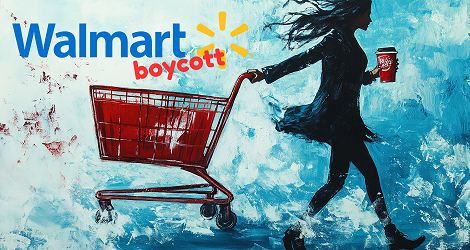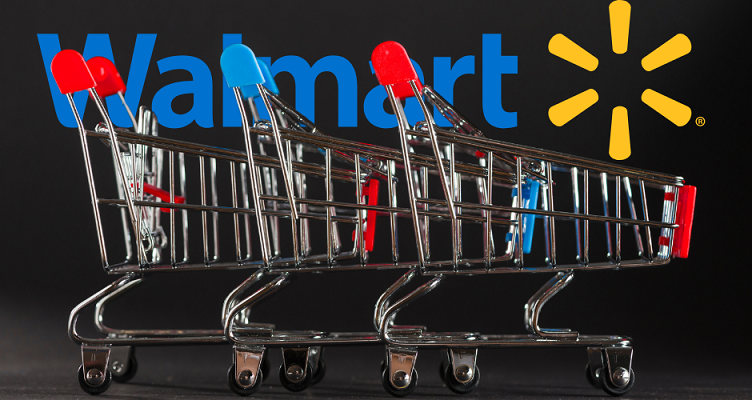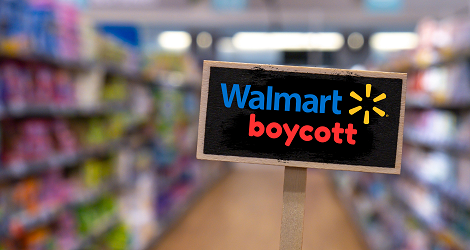Introduction: The Power of Consumer Protest
The word boycott isn’t one to be used carelessly. It’s a cry with more than picket lines or outraged tweets. And when the entity to boycott is a big-box player like Walmart, the stakes are even higher. The Walmart Boycott is not a brief flash on the news ticker; it’s a conflict that includes values, economics, ethics, and community priorities.
Why are the millions deserting one of the world’s cheapest and most accessible stores? Is it economic, social, or political? The answer is yes—and a great deal more.
Here we present a balanced, researched study of the evolving boycotts Walmart calls, looking at what ignited them, who made them, and what it all says about the world in which we live.

A Brief History of Walmart and Its Impact
Sam Walton started Walmart in 1962 with a simple vision: offer low prices so that people can save money and live better. Over the years, the company became the world’s largest retailer, with over 2.1 million associates and hundreds of millions of customers worldwide.
Key Points:
- Global Presence: Over 10,500 stores worldwide
- Revenue Per Year: $611 billion (2023)
- Market Share in the U.S.: Largest grocery store chain in the country
- Online Shopping: Second only to Amazon among American online shoppers
Despite all of its success, Walmart has long been a lightning rod for controversy, finding itself subject to negative press from labor unions, small business owners, environmentalists, and even political activist groups.
Why Are People Boycotting Walmart?
The Walmart boycott is not a single-issue protest. It is multifaceted, with various groups having various reasons.
1. Labor and Wage Issues
Walmart has never been charged with engaging in unfair labor practices. The retailer is faulted for:
- Paying minimum wages
- Squashing unionization efforts
- Granting paltry benefits
The Economic Policy Institute analyzed a study that uncovered how Walmart’s pay policies have contributed to income inequality.
2. Wrecking Small Businesses
Walmart’s expansion has a tendency to initiate the closure of local businesses. A study conducted at Loyola University found that within the first decade following the opening of a Walmart store, up to 50% of local small businesses went out of business.
This raises severe concerns in terms of:
- Market monopolistic behaviour
- Loss of local cultural and economic community texture
- Reduced consumer option

3. Political and Social Challenges
Walmart got entangled in hot political storms lately:
- Gun Control: Following the 2019 shooting in El Paso, Texas, Walmart limited gun sales—coming under fire from pro-gun as well as gun-control lobbies.
- Support for LGBTQ+: Its support for Pride campaigns roused boycott calls by right-wing organizations.
- Juneteenth Merchandise: Was accused of cultural appropriation in 2022.
The polarization puts Walmart in the firing line from both sides.
4. Environmental Impact
Despite sustainability promises, Walmart remains one of the largest carbon-emitting retailers. Its critics cite:
- Mass plastic usage
- Supply chain emissions
- Deforestation for green spaces to build supercenters
Environmentalists are also part of the boycott.
Who is spearheading the Walmart Boycott?
There are several large players spearheading the boycott campaign:
- Labor Unions like the UFCW (United Food and Commercial Workers)
- Progressive Organizations like MoveOn.org
- Right-Wing Activists upset over Walmart’s gun and LGBTQ+ rights stances
- Greenpeace-style eco-NGOs
Influencers and celebrities have also added fuel to the fire, trending hashtags like #BoycottWalmart.
What Does Walmart Say?
Time and again, Walmart has defied criticism. On its official website, the company proclaims that:
- It pays reasonable wages (most recently raised to $14/hour)
- Pioneering sustainability with Project Gigaton (cut 1 billion metric tons of emissions by 2030)
- Strong emphasis on DEI (Diversity, Equity, and Inclusion)
Others argue these are performative or insufficient in light of Walmart’s massive size and influence.

Walmart Boycott vs. Other Retail Boycotts
Compare the Walmart boycott to other comparable efforts:
| Retailer | Reason for Boycott | Outcome |
|---|---|---|
| Target | LGBTQ+ products | Continued, intense backlash |
| Amazon | Working conditions, monopolistic practice | Mixed outcome |
| Chick-fil-A | Anti-LGBTQ+ donations | Removed from some cities, altered donation practices |
While other boycotts have yielded concrete policy reform or public apologies, the scope and breadth of Walmart’s resources have left it less exposed.
Economic Impact of the Walmart Boycott
So far, the boycott hasn’t had a major dent in Walmart’s bottom line, but that doesn’t mean it has no effect.
Areas Where the Walmart Boycott Has Had Real Impact:
- Reputation Risk: Reputation lost, prominent among Gen Z
- Stockholder Pressure: ESG investors are demanding
- Local Economic Transitions: various neighbourhoods have been revitalized following boycotting Walmart stores
Real Stories: Voices of the Boycott
Linda Harper, a former Ohio Walmart employee, participated in the boycott after being blocked from receiving health benefits for working full-time.
“I gave them 8 years. In the end, I felt disposable. That’s why I now shop local, even if it costs more.”
Jose Martinez, an Arizona business owner, fought a proposed Walmart Supercenter:
“We organized the community. We sought to take back our town. And we succeeded.”
These are narratives that add emotional richness to the boycott that can’t be minimized by statistics and graphics.

The Role of Social Media in Organizing the Boycott
Twitter, TikTok, and Instagram became battlegrounds.
Hottest hashtags now:
- #BoycottWalmart
- #WalmartWalkout
- #ShopLocal
Going viral videos of exploited workers or Walmart-induced ecological destruction further fueled the movement.
What Can Consumers Do?
If you are thinking of boycotting Walmart, here are steps of action:
- Support Local Businesses: Farmers markets, local food stores, co-ops
- Use Ethical Shopping Guides like Good On You or Ethical Consumer
- Vote with Your Wallet: Choose brands that have open labor practices
- Spread Awareness: Share facts and information, not outrage
Future Prospects: Will the Boycott Change Walmart?
Walmart has demonstrated some responsiveness to citizen activism. If the boycott becomes widespread enough, anticipate:
- take-home policies for employment and compensation will shift
- investment in sustainability will increase
- more thoughtful political neutrality
Further transformation, though, will require sustained activism and a shift in consumer culture at scale.

Conclusion: It’s Not Just a Store
The Walmart boycott is not a shopping boycott—it’s an experiment in consumer morality for the 21st century. It’s about what we tolerate, what we demand, and what we want the world to look like when we spend our hard-earned cash.
Walmart may be too big to fail, but we’ve learned from history that even giants need to hear us when the ground beneath their feet begins to shift.
Call to Action:
Did you participate in, or consider partaking in, the Walmart boycott? Share your experience with us below. Read our other ethics stories and learn how your shopping can create change.




